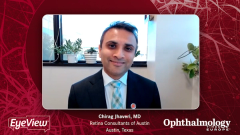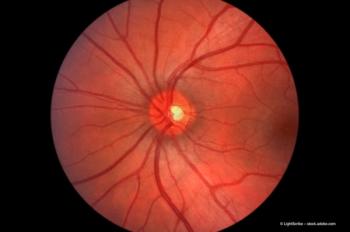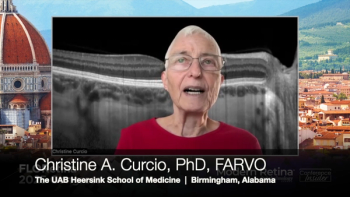
PDS in Retinal Diseases: Interpreting the LADDER and ARCHWAY Studies
Chirag Jhaveri, MD, reviews the trial design and results of the LADDER and ARCHWAY studies, which tested the port delivery system in neovascular AMD.
Transcript:
Chirag Jhaveri, MD: The LADDER trial was a phase 2 trial that showed overall good safety and efficacy for the port delivery system [PDS] for the treatment of neovascular AMD [age-related macular degeneration]. It looked at varying doses of ranibizumab in the PDS implant. Patients were dosed at 10-mg, 40-mg, and 100-mg concentrations. Interestingly, and this is different than the ARCHWAY study which we’ll talk about shortly, patients were only given a refill of ranibizumab if they met criteria of worsening fluid, vision, or new submacular hemorrhage. The 100-mg concentration, which is what is approved, showed that about 80% of patients were able to go 6 months or longer before needing a refill; the median time for needing the first refill in the 100-mg group was nearly 16 months.
Overall, the port delivery system procedure was very well tolerated. As mentioned before, after the modification of the technique, patients did not have any vitreous hemorrhage within the first month. The refill procedure was also very well tolerated, and was able to be done in an in-office setting.
Coming from very good results from the LADDER trial, ARCHWAY was the phase 3 trial, which was a 2-year study comparing monthly ranibizumab to the PDS implant with 100 mg ranibizumab and refills [every] 6 months. The patients enrolled in this study were patients who had wet AMD, were diagnosed within 9 months of screening, and who were responding to anti-VEGF treatment. The ARCHWAY trial showed that 98% of patients were able to go without any additional treatment in the PDS group. The PORTAL trial is an extension study that will be looking at how patients do beyond 2 years. The safety and tolerability of the procedure were also consistent with the LADDER study, particularly with respect to very low incidence of vitreous hemorrhage, as well as the procedure being very well tolerated.
The patients who were included in the ARCHWAY study were recently diagnosed with neovascular AMD. All the patients had to be diagnosed within 9 months of their screening visit, and they all had to show a good response to anti-VEGF therapy.
The ARCHWAY study so far shows that patients are tolerating the port delivery system very well, even in a long-term manner. We’re also showing that patients have good, consistent visual recovery, as well as good stability of their macular thickness. We also analyzed patients with fluid fluctuations, and showed that patients with the port delivery system have good minimization of fluid fluctuations, similar to having monthly ranibizumab injections. I’m also excited about learning what longer-term data are going to show in the PORTAL study. The PORTAL study is looking at patients well beyond 2 years, as well as multiple refills beyond 2 years.
Transcript edited for clarity.
Newsletter
Get the essential updates shaping the future of pharma manufacturing and compliance—subscribe today to Pharmaceutical Technology and never miss a breakthrough.





























